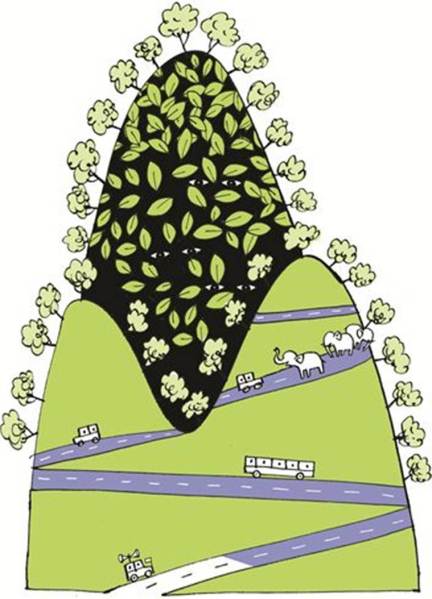
Written by Kalpetta Narayanan
If election is a big festival, in all its acoustical and visual glory it is taking place in Wayanad. Ending its centuries-old existence in the underground, Wayanad is putting up a booming parade. The world is scrambling up the ghat to Wayanad, which, until now, had to travel down to be a part of the mainstream, to partake in festivities.
Wayanad is now in limelight not just because of its natural beauty, but also because of its political significance. The arrival of leaders of different political parties, made necessary because of the presence of Rahul Gandhi in the electoral fray, has turned Wayanad into the nodal point of Kerala politics this season. Wayanad, until now the tail end of Kerala, has now become its political capital. I can sense my birthplace trembling with excitement.
Wayanad has been the safe house of Kerala. Of Pazhassi Raja, Varghese (the popular Naxalite leader killed in an encounter in 1970), refugees seeking a better life, wealth-seekers, forests, cold, beauty. When the forests are in flame or tragedy strikes Adivasi settlements or the presence of Naxalites is reported, Wayanad appears on the news map like a terrible beauty.
This region has the reputation of being a major source of Kerala’s economic wealth and a place where estates peacefully sleep like a happy breast-fed baby. You shall fail to tempt a person who has grown up in Wayanad with natural beauty; never can solitude tease a person who has spent his childhood in Wayanad.
Its climate has changed and it’s no more the old place, people may criticise. But for the first-time visitor, Wayanad offers a pageant of amazements. The diversity, richness of its green… how green are the leaves in Wayanad! How radiant its flowers! How deep is sleep here! How sweeping the solitude! I once wrote, even the glass pieces could sprout here, so fertile is the soil here!
The light shower that falls in the months of February and March turns Wayanad into the most beautiful and expansive of gardens on this Earth. Wayanad gets enveloped in the fragrance of coffee blooms.
For some reason, Wayanad has never received the attention it deserves. Pilgrims in pursuit of beauty are still uncommon here.
No one can understand Steinbeck’s Grapes of Wrath more than a resident of old Wayanad. This is a soil where marginal farmers have toiled endlessly. You will not see anyone who sits idle in this landscape. He is forever digging in or digging out. Tapioca, kandi kizhangu (a variety of tuber), pumpkin taste better here than anywhere else. Gandhakashala rice isn’t as fragrant elsewhere as it is here. Wayanad is not just beauty, it is also fragrance and taste.
Wayanad has no culture or language of its own. It is the only place where the residents enquire about where they came from when they meet. That’s perhaps why the migrants showed little mercy to it. It became a paradise for fertiliser firms. It’s unlikely that there’s another place where so many trees have been cut down. Nowhere else would so much money have been spent in the name of tribals.
The diverse tribes of Wayanad, who almost make up the majority here, do not live a life of dignity and self-respect, unlike their counterparts in the Northeast. These forsaken people still do not have the wherewithal to understand all the noise. ‘Who is this Rahul Gandhi?’ They are unlikely to know. Elections speak to them only through the feel of money the different political parties slip into their palms.
Yet, when light breaks over Wayanad, let us hope a bit of it will bounce on them as well. Let it!
The writer, a poet, critic and novelist, grew up in Wayanad. His novel, Ithramatram (Just This Much), and memoir, Konthala, have vivid descriptions of life in this district, high up in the Western Ghats. Translated by Sindhu V Nair